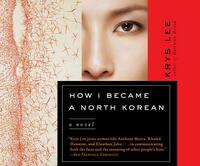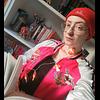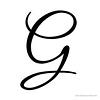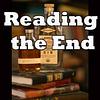Take a photo of a barcode or cover
challenging
dark
emotional
tense
fast-paced
Plot or Character Driven:
A mix
Strong character development:
Yes
Loveable characters:
Yes
Diverse cast of characters:
Complicated
Flaws of characters a main focus:
No
I loved this, a lot. It's a fantastic short book and I ripped through it in about a day.
I was aprehensive before starting it, because of some of the reviews I read here - so let me address some of the issues brought up in those first!
1) The title - it IS relevant. Each of the characters considered themselves a 'Korean' whilst living in North Korea or otherwise. They were simply a person belonging to their country and they didn't consider themselves specifically a 'North Korean' - it wasn't the main part of their self or their identity. However, after leaving (or arriving, in Daehan's case), that became the first and most important thing that ANYONE noticed about them - therefore, they all became 'North Korean'.
2) The pacing. A couple people said that the pace flagged, and this didn't match up to survivor stories from NK. I think that is seems VERY realistic, and it's unfair I think so say that it doesn't seem real when the situations encountered by each of the characters is what those escaping from NK face. If you only want the "exciting" parts - the departure from North Korea, and the arrival wherever, then I have nothing to say to you other than that's a real shame, because you're missing out on some of the most interesting parts of the book!
Yes it is sad, yes most of it is disheartening but what were you expecting really? If you wanted sparkles and a very obvious happily-ever-after, you shouldn't have picked up a book with North Korea in the title. This is very realistic, harrowing, but very gripping and interesting if you go into it expecting that.
- OK!
Now onto what I thought.
1. Great storytelling! Krys Lee really gets how the characters must be feeling and expresses it really well. Yes, it does mean that sometimes you don't like the characters very much but they are fighting every step of their journey for their lives and they've all gone through many horrible experiences - that would leave anyone with a tough exterior.
2. I was stunned by how realistic it felt - I honestly felt like I was reading a memoir and I think Krys Lee has done an amazing job to make it feel so real!
3. I could NOT put it down - I picked this up one night, read until I couldn't stay awake anymore, went to Starbucks in the morning, and finished it in one go.
4. I think this is so important! It brings the plight of North Korean escapees, and their trials AFTER leaving their country to light to a range of people who might not pick the book up if it were 'non-fiction'. It shows how they are told to move forward with their lives after leaving but are constantly prompted to only look back.
It's great, basically. Have an interest in NK? Pick this up. It's short, quick, gripping and thought-provoking.
I was aprehensive before starting it, because of some of the reviews I read here - so let me address some of the issues brought up in those first!
1) The title - it IS relevant. Each of the characters considered themselves a 'Korean' whilst living in North Korea or otherwise. They were simply a person belonging to their country and they didn't consider themselves specifically a 'North Korean' - it wasn't the main part of their self or their identity. However, after leaving (or arriving, in Daehan's case), that became the first and most important thing that ANYONE noticed about them - therefore, they all became 'North Korean'.
2) The pacing. A couple people said that the pace flagged, and this didn't match up to survivor stories from NK. I think that is seems VERY realistic, and it's unfair I think so say that it doesn't seem real when the situations encountered by each of the characters is what those escaping from NK face. If you only want the "exciting" parts - the departure from North Korea, and the arrival wherever, then I have nothing to say to you other than that's a real shame, because you're missing out on some of the most interesting parts of the book!
Yes it is sad, yes most of it is disheartening but what were you expecting really? If you wanted sparkles and a very obvious happily-ever-after, you shouldn't have picked up a book with North Korea in the title. This is very realistic, harrowing, but very gripping and interesting if you go into it expecting that.
- OK!
Now onto what I thought.
1. Great storytelling! Krys Lee really gets how the characters must be feeling and expresses it really well. Yes, it does mean that sometimes you don't like the characters very much but they are fighting every step of their journey for their lives and they've all gone through many horrible experiences - that would leave anyone with a tough exterior.
2. I was stunned by how realistic it felt - I honestly felt like I was reading a memoir and I think Krys Lee has done an amazing job to make it feel so real!
3. I could NOT put it down - I picked this up one night, read until I couldn't stay awake anymore, went to Starbucks in the morning, and finished it in one go.
4. I think this is so important! It brings the plight of North Korean escapees, and their trials AFTER leaving their country to light to a range of people who might not pick the book up if it were 'non-fiction'. It shows how they are told to move forward with their lives after leaving but are constantly prompted to only look back.
It's great, basically. Have an interest in NK? Pick this up. It's short, quick, gripping and thought-provoking.
For a short book this took me surprisingly long to finish and there's no literary related reason why. The plot was complex enough, the pace wasn't too slow, the language was brilliant and the main characters likeable. What made How I Became A North Korean hard to read is how real it is. Obviously as a Western middle class person I have no idea how things actually are but from what I've grown to know this might be close to what the reality at the border is. It's hard to read about things you can do nothing about but feel like you should do so much about to make it change or stop.
Endings are a difficult thing. Often they are too optimistic utopia or tracigal not in a scale to the book's events. This book ends well, it's realistic, optimistic after all and hopeful. Though the romantic in me did hope Daehan's feelings for Yongju would have been mutual.
Endings are a difficult thing. Often they are too optimistic utopia or tracigal not in a scale to the book's events. This book ends well, it's realistic, optimistic after all and hopeful. Though the romantic in me did hope Daehan's feelings for Yongju would have been mutual.
Granted this fed my North Korea obsession, but I found it a supremely satisfying read. It alternates between three characters who tell their own stories -- all three have distinct voices and don't blend into each other as sometimes happen in books with rotating viewpoints. A slim but powerful read.
Decent story, glad I read it, but I just felt distant from it the whole time I was reading. Not sure why.
slow-paced
Plot or Character Driven:
Character
Strong character development:
Complicated
Loveable characters:
Complicated
Diverse cast of characters:
No
Flaws of characters a main focus:
Complicated
This book provided a insight and perspective of escaping North Korea that while not unheard of, still breaks your heart to read about.
It started off slower than anticipated and I was eager to learn how the three characters paths would align. It picked up in the middle and then predictable in the end.
It started off slower than anticipated and I was eager to learn how the three characters paths would align. It picked up in the middle and then predictable in the end.
"You ever thought about what happens to them after coming? They take on a new identity and a name. They invent a biography for themselves - at least until they have to be more truthful so that someone like me can double-check their story and give them shelter. If they're ever lucky enough to cross into a third country, most reinvent themselves all over again. But they'll always be North Korean. The way they talk and think, the things they know and the things they don't, their history wiped out in a new country - it marks them forever. They go into South Korea with their fantasies and are ashamed when they're looked down at, or shocked when people suspect them of being spies, or act wary, or worse, stop caring. I've seen it hundreds of times. They don't have a choice. Unlike you."
I enjoyed Kyrs Lee's [b:Drifting House|11909375|Drifting House|Krys Lee|https://images.gr-assets.com/books/1327937623s/11909375.jpg|16868587] her debut short-story collection, and was looking forward to this, her debut novel.
It is set in the world of young homeless refugees from North Korea, Kkotjaebi 꽃제비, literally flowering swallows, fending for survival amongst the Joseon-jok (조선족), the ethnic Korean community in China.
The story is told in three alternating stories narrated by Yongju (용주), privileged scion of a senior North Korean official who fled the country after his father was abruptly executed ("You're in China now, you're a nobody."), the resourceful Jangmi (장미), a young pregnant girl from the other end of the social spectrum, given her name (literally Rose) by her arranged Chinese husband, and Danny/Daehan (대한), the subject of the quote than opens my review, a Chinese-American student of Korean descent, who fled a socially awkward situation at college to come to China to stay with his mother but who ends up passing himself off as one of the refugees ("I'm a university student surrounded by crass, ignorant kkotjaebi").
The stories of the three characters quickly converge as they find that even the Christian missionaries who appear to offer their only hope have their own mixed motives.
Lee has rooted the novel in not just research but personal involvement in the defectors' plight (see
https://www.theguardian.com/culture/2016/aug/12/krys-lee-interview-north-koreans-became-part-of-my-world-and-then-i-got-threats-) and as fictional documentary it certainly works.
And the use of Korean words, Romanized but not translated, throughout the text adds to atmosphere and gives the reader less familiar with the language a sense of the character's alienation, a technique also used in Sunjeev Sahota's [b:The Year of the Runaways|17824793|The Year of the Runaways|Sunjeev Sahota|https://images.gr-assets.com/books/1434968048s/17824793.jpg|24934421] (a comparison more generally made in this excellent review https://www.goodreads.com/review/show/1632576810?)
However, at literary fiction I found it ultimately less successful. The character of Daehan seemed an unnecessarily artificial addition to a very real situation, and the story remained at a relatively straightforward level.
I can only repeat my conclusion for The Year of the Runaways: Overall, a worthwhile read, although perhaps of more socio-political than artistic merit
I enjoyed Kyrs Lee's [b:Drifting House|11909375|Drifting House|Krys Lee|https://images.gr-assets.com/books/1327937623s/11909375.jpg|16868587] her debut short-story collection, and was looking forward to this, her debut novel.
It is set in the world of young homeless refugees from North Korea, Kkotjaebi 꽃제비, literally flowering swallows, fending for survival amongst the Joseon-jok (조선족), the ethnic Korean community in China.
The story is told in three alternating stories narrated by Yongju (용주), privileged scion of a senior North Korean official who fled the country after his father was abruptly executed ("You're in China now, you're a nobody."), the resourceful Jangmi (장미), a young pregnant girl from the other end of the social spectrum, given her name (literally Rose) by her arranged Chinese husband, and Danny/Daehan (대한), the subject of the quote than opens my review, a Chinese-American student of Korean descent, who fled a socially awkward situation at college to come to China to stay with his mother but who ends up passing himself off as one of the refugees ("I'm a university student surrounded by crass, ignorant kkotjaebi").
The stories of the three characters quickly converge as they find that even the Christian missionaries who appear to offer their only hope have their own mixed motives.
Lee has rooted the novel in not just research but personal involvement in the defectors' plight (see
https://www.theguardian.com/culture/2016/aug/12/krys-lee-interview-north-koreans-became-part-of-my-world-and-then-i-got-threats-) and as fictional documentary it certainly works.
And the use of Korean words, Romanized but not translated, throughout the text adds to atmosphere and gives the reader less familiar with the language a sense of the character's alienation, a technique also used in Sunjeev Sahota's [b:The Year of the Runaways|17824793|The Year of the Runaways|Sunjeev Sahota|https://images.gr-assets.com/books/1434968048s/17824793.jpg|24934421] (a comparison more generally made in this excellent review https://www.goodreads.com/review/show/1632576810?)
However, at literary fiction I found it ultimately less successful. The character of Daehan seemed an unnecessarily artificial addition to a very real situation, and the story remained at a relatively straightforward level.
I can only repeat my conclusion for The Year of the Runaways: Overall, a worthwhile read, although perhaps of more socio-political than artistic merit
This debut novel by Krys Lee, who has worked with defectors from North Korea herself, follows three characters on a long and strange journey to find a reality that they can accept. Yongju is the son of privilege in North Korea, forced to flee after the Dear Leader kills his father in cold blood; while a pregnant Jangmi allows herself to be sold into marriage in China in the hopes that her new husband will believe the baby is his. The non-North Korean of the group is Danny, a Korean American teenager in search of meaning.
How I Became a North Korean is a weird fever dream of a book for a weird fever dream of a country. If some of the plot twists seem unlikely, it can’t even compare to the unlikelihood that a country like North Korea could exist, this rarefied environment in which the country’s leader acts with utter impunity against his own people, and of which so little is reliably known that we can’t even assess what needs to change.
(Except, you know, everything.)
Krys Lee is writing about something I haven’t encountered before, which is the difficulties that North Koreans face after crossing out of their own country. Though rescue organizations do exist, Lee has had some experience with predatory Christian agencies less interested in helping refugees than gaining more donation money from visitors. This experience informs the bulk of the book, as North Korean refugees find not safety but a new kind of captivity when they leave their country.
How I Became a North Korean is a weird fever dream of a book for a weird fever dream of a country. If some of the plot twists seem unlikely, it can’t even compare to the unlikelihood that a country like North Korea could exist, this rarefied environment in which the country’s leader acts with utter impunity against his own people, and of which so little is reliably known that we can’t even assess what needs to change.
(Except, you know, everything.)
Krys Lee is writing about something I haven’t encountered before, which is the difficulties that North Koreans face after crossing out of their own country. Though rescue organizations do exist, Lee has had some experience with predatory Christian agencies less interested in helping refugees than gaining more donation money from visitors. This experience informs the bulk of the book, as North Korean refugees find not safety but a new kind of captivity when they leave their country.






